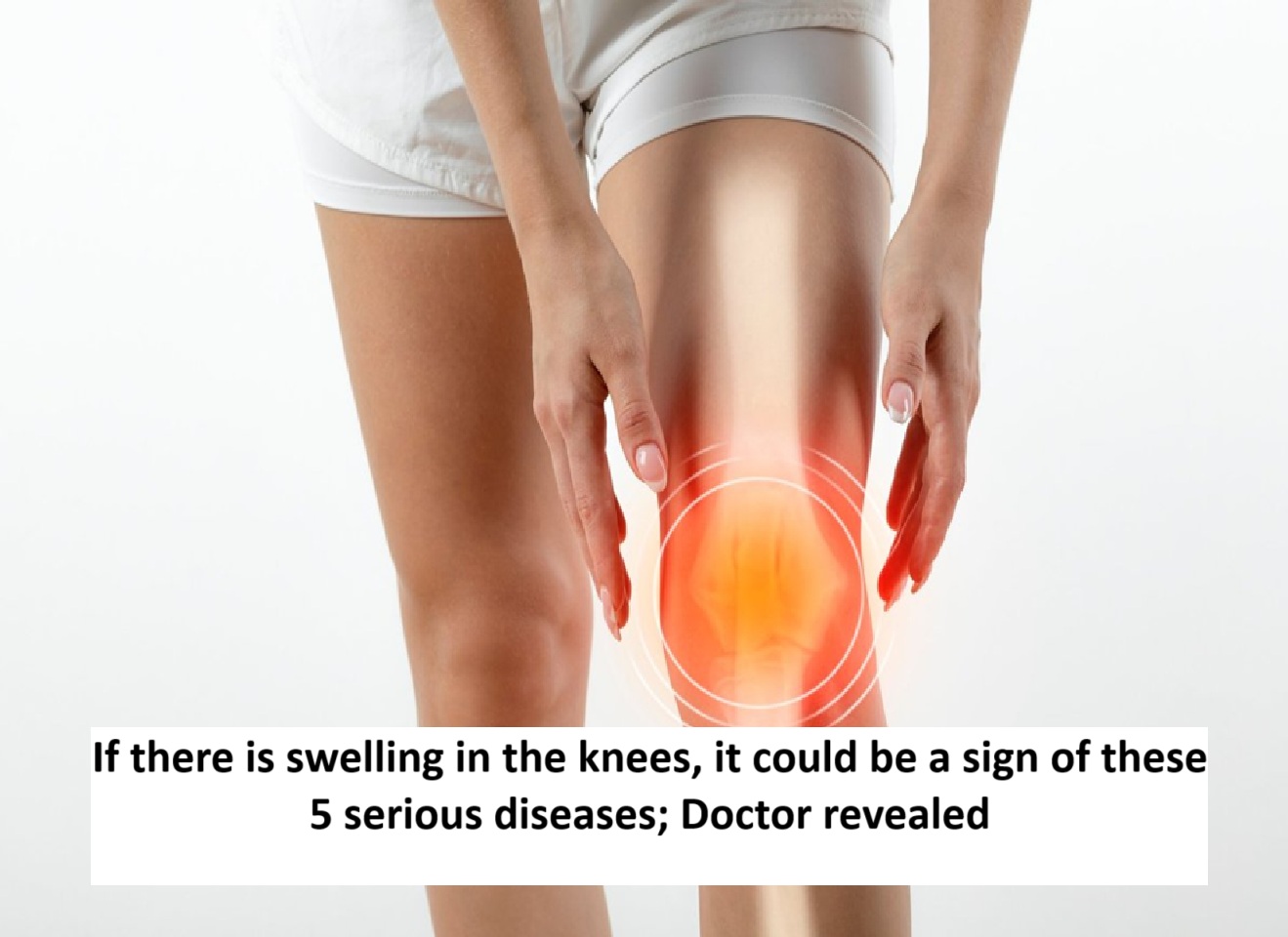
News Topical, Digital Desk : Do your knees feel heavy and swollen as soon as you get up from bed in the morning or do you feel a strange stiffness and swelling in your knees in the evening after a long day of running around (What Causes Swollen Knee)? If yes, then do not make the mistake of taking this common problem lightly. Let us tell you, swelling of the knees is not just the result of fatigue or injury; sometimes it can also be the first sign of a major and serious disease growing inside your body.
Harvard gastroenterologist Dr Saurabh Sethi believes that there may be some reasons behind persistent swelling in the knees, which need immediate attention. Let us know about those 5 dangerous diseases, which can be responsible for swelling in your knees.
heart failure
Don't be surprised! Swelling of knees can also be connected to your heart. Yes, when your heart is unable to pump blood properly in the body (called heart failure), the pressure in the blood vessels increases. Due to this, fluid starts accumulating in the lower parts of the body, especially in the legs and knees, causing swelling. If you also feel problems like shortness of breath, fatigue and cough, then contact the doctor immediately.
Liver Disease
The liver performs many important functions in the body, including making protein and maintaining fluid balance. When the liver is damaged (such as with cirrhosis), it cannot make enough proteins, especially albumin, which helps maintain fluid in the blood vessels. A deficiency can cause fluid to leak out of the blood vessels and accumulate in the tissues, which can lead to swelling in the legs and knees. Jaundice, fatigue, and a swollen abdomen can also be symptoms.
Kidney disease
The main job of the kidneys is to remove excess fluid and waste products from the body. If your kidneys are not working properly (kidney failure), water and salt start to accumulate in the body. This accumulation often appears as swelling in the feet, ankles and knees. Symptoms such as decreased urination, fatigue and itching can also be a sign of a kidney problem.
blood clots
Sometimes blood clots form in the veins of the legs, a condition called deep vein thrombosis (DVT). The clot obstructs blood flow, causing swelling, pain and redness in the area downstream of the clot, often in the leg and knee. This can be an emergency because the clot can break off and travel to the lungs, which can be life-threatening. If you experience sudden swelling, pain and warmth in one leg, see a doctor without delay.
Nerve weakness
The veins in our legs carry blood back to the heart. These veins have small valves that help the blood flow upward. When these valves become weak or damaged, blood starts accumulating in the legs, which increases blood pressure and causes fluid to leak from the veins. This leads to chronic swelling in the legs and knees. This is often accompanied by heaviness in the legs, pain and skin changes.
When should we be careful?
If you have any of these symptoms along with swelling in your knees:
- Difficulty in breathing
- Chest pain
- sudden and severe pain
- redness or warmness of the skin
- Fever
- Changes in urination
- Constant fatigue
Read More: From bad breath to swollen gums, oil pulling can provide relief
--Advertisement--

 Share
Share



